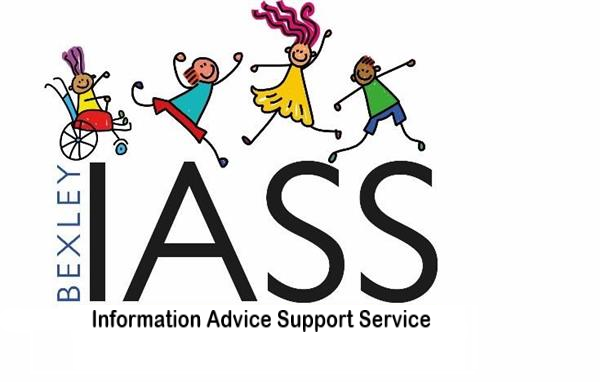If your child has complex needs, these may have been picked up at birth by health professionals, your health visitor or through screening tests.
You may be asked by your Health Visitor or other professionals to fill in Ages & Stages (ASQ) questionnaires.
Ages & Stages Questionnaires (ASQ), are a developmental screening tool designed for use by early educators and health care professionals.
They create a snapshot to enable professionals to catch delays and celebrate milestones.
Your observations of your baby as they develop are important. If you have any worries about your child’s development, it’s important to share these with your doctor or health visitor.
Some children with Special Educational Needs (SEN) may be diagnosed with a medical condition, but a child does not need a diagnosis to have SEN.
Your child may be referred to specialists such as an occupational therapist (OT), an educational psychologist (EP) or a speech and language therapist (SALT).
Early Years Support services in Bexley:
Early Years Education:
For information on Schools in Bexley including Nursery, Primary, Secondary and Post 16 and the Bexley School Admissions Team contact details please visit the Bexley Local offer schools and special provisions advice page: https://www.bexleylocaloffer.uk/Services/2303
Bexley Local Authority Early Years Advisory Team:
The Early Years Advisory Team are a team of specialists who work to support parents of children in the settings who are already diagnosed with a special educational need or disability who have or may go on to have an education and health care plan (EHC Plan): https://www.bexleylocaloffer.uk/Services/2289
Portage:
Portage is a home visiting educational service for pre-school children with complex additional needs and their families: https://www.bexleylocaloffer.uk/Services/5561
Bexley Early Autism Team (BEAS):
Bexley BEAS Team provide support for very young children who are recognised to be on the autism spectrum and aged from in the year before they are due to start Reception class at school, who meet the criteria.
https://www.bexleylocaloffer.uk/Services/2299
Early Years Health Services:
For specific information about health services including mental health and well being, the children and adolescent mental health service (CAMHS), GP’s, specialist dental service, what to do if you are not happy with a service and more, please visit the Health and Wellbeing section of the Bexley Local Offer: http://www.bexleylocaloffer.uk/Services/category/268
Having problems finding Childcare?
Families with disabled children sometimes find it difficult to access childcare.
This guide, compiled by Irwin Mitchell Solicitors with Steve Broach (barrister at Monckton Chambers) for Contact is aimed primarily at parent carers who are finding it difficult to access free childcare for a disabled child aged two to four, but it should also be helpful for parents struggling to access suitable childcare for older disabled children.
Please Click Here to open and download this document.

Early Years Observations
It is expected that all early years settings monitor the progress and development of all children.
Every Nursery, Pre school & childminder will record this in different ways.
This is split into seven areas of learning development:
- Personal, social and emotional development
- Communication and language
- Physical development
- Literacy
- Mathematics
- Understanding the world
- Expressive arts and design

By focussing on these first, your child can secure the skills needed to progress within their development.
Early years settings will use this framework to continually observe and review how your child is learning, and parents’ insights are an important part of this. The framework includes two formal reviews:
- one at age two, looking at language and communication and physical, personal, social and emotional development
- one at age five, looking at literacy, mathematics, understanding the world and expressive arts and design.
The aim of this check is to:
- Review your child’s development in the three prime areas of the EYFS
- Ensure that you have a clear picture of your child’s development
- Enable the adults working with your child to understand your child’s needs and plan activities to meet them in the setting
- Enable you to enhance your child’s development at home
- Identify areas where your child is progressing well and areas where progress is less than expected
- Describe the actions the setting intends to take to support the areas for development
Children with Special Educational Support (SEN) in Early Years settings.
Nurseries, pre-schools and childminders are required to have arrangements in place to support children who have Special Educational Needs (SEN) or disabilities.
These requirements are set out in the Early Years Foundation Stage (EYFS) framework.
The majority of children who have SEN or disabilities do not require specialist resources or enhanced staffing to be successfully included.
Chapter five of the SEN and Disability Code of Practice 2015 ( SEND Code) applies to all children in early years settings that (including private/independent providers) whether or not they have an EHC plan. It emphasises the legal requirement on early years’ providers to have arrangements in place to identify and support children with SEN and disabilities. This could be done through the universal progress checks at age two or five, or at any other time. The SEND Code identifies four broad areas of need:
- Communication and interaction;
- Cognition and learning;
- Social, emotional and mental health;
- Sensory and/or physical needs.
Special educational provision given to children is called SEN Support. The Code recommends a graduated approach which has four stages of action: Assess; Plan; Do; Review.
Early years settings are advised to involve specialists:
Paragraph 5.48 of the SEND Code states: “where a child continues to make less than expected progress, despite evidence-based support and interventions that are matched to the child’s area of need”.
The decision to involve specialists should be taken with the child’s parent carers.
For more information on SEN Support in mainstream schools for Early Years children (0 – 5) please click below to access the Bexley Local Offer: SEN Support for Early Years children (0-5)
What if SEN Support isn't enough?
If your child needs more help than the early years setting can normally provide, the Nursery or Pre school should discuss this with you.
They may need an Education Health and Care needs assessment, which may lead to an Education Health and Care plan.
Please click on the link to get more information from the Bexley Local Offer on the EHC Needs Assessment process in Bexley.

If you child has Health Needs
Mainstream settings must ensure children with special educational needs (SEN) and any Health conditions are supported and included.
The setting cannot refuse to take your child because they are disabled or have SEN. Local authorities must make sure that all settings that provide free early education receive additional funding to support those children who need extra help.
All early years providers must follow the Early Years Foundation Stage (EYFS) framework. This includes having arrangements in place to identify and support disabled children and children who have, or may have, SEN and Health conditions.
If your child has Health needs and you live in Bexley please find more information for parent carers on the Bexley Local Offer: Health needs (0 – 5 years)
Moving from the Early Years Setting into School
During your child’s early years you may be thinking ahead about where they will go to primary school.
When they reach Compulsory School Age they will need to start full time education.
What is Compulsory School Age?
The Education Act 1996, Section 8, says the following:
A person begins to be of compulsory school age—
(a) when he attains the age of five, if he attains that age on a prescribed day, and
(b) otherwise at the beginning of the prescribed day next following his attaining that age.
What this means is that a child must have started full-time education by the start of term following a child’s fifth birthday.
The Bexley Local Offer section on Schools, Specialist Resource Provisions, Special schools will provide you with lots of information: Click here

Education of children outside their chronological year group
If you are considering a request for your child to be placed below (deceleration) or above (acceleration) their chronological age group the following factors must be considered:
- Is the pupil’s development significantly below the expected level for their age range?
- Has the pupil experienced problems which have resulted in being out of education for a substantial period of time?
- Has the pupil previously been educated in a different year group from the normal one for their age up until that point?
- Is the pupil remarkably gifted and talented?
- Was the pupil born prematurely and would they have been admitted into the year ‘below’ if delivered on their due date?
- Is the pupil delayed emotionally and therefore cannot make adequate relationships with their peer group?
When you are making a request for your child to be educated outside of their chronological age group, you will need to have strong evidence.
For children starting a new school:
The decision-maker, in the case of admission to school, will be the Local Authority (LA). However, the LA must also take account of the views of the headteacher of the school concerned.
For children already on roll at the school:
In this case, the person making the decision whether or not to move the child out of their chronological year group, will be the Head Teacher.
What does the Guidance state:
The relevant Guidance to look at here is the School Admissions Code 2021 (P.25). This section states the following:
2.18 Parents may seek a place for their child outside of their normal age group, for example, if the child is gifted and talented or has experienced problems such as ill health.
In addition, the parents of a summer born child may choose not to send that child to school until the September following their fifth birthday and may request that they are admitted out of their normal age group – to reception rather than year 1. Admission authorities must make clear in their admission arrangements the process for requesting admission out of the normal age group.
2.19 Admission authorities must make decisions on the basis of the circumstances of each case and in the best interests of the child concerned.
This will include taking account of the parent’s views; information about the child’s academic, social, and emotional development; where relevant, their medical history and the views of a medical professional; whether they have previously been educated out of their normal age group; and whether they may naturally have fallen into a lower age group if it were not for being born prematurely.
They must also take into account the views of the head teacher of the school concerned. When informing a parent of their decision on the year group the child should be admitted to, the admission authority must set out clearly the reasons for their decision.
2.20 Where an admission authority agrees to a parent’s request for their child to be admitted out of their normal age group and, as a consequence of that decision, the child will be admitted to a relevant age group (i.e. the age group to which pupils are normally admitted to the school) the local authority and admission authority must process the application as part of the main admissions round, unless the parental request is made too late for this to be possible, and on the basis of their determined admission arrangements only, including the application of oversubscription criteria where applicable.
They must not give the application lower priority on the basis that the child is being admitted out of their normal age group. Parents have a statutory right to appeal against the refusal of a place at a school for which they have applied. This right does not apply if they
are offered a place at the school, but it is not in their preferred age group.
